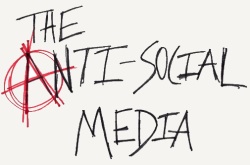Why is it that some people have thousands of followers, and others only have a handful? Sure, it could be they lock their accounts down. It could be they really don’t work on spreading their message beyond a few close friends. Or it could be that they create really horrible content with no value to anyone.
But, what if they aren’t particularly bland, they’re every open, and the share content of great value to all kinds of people. While they may not be a celebrity, they certainly give you more value than learning what happened in the life of Ashton Kutcher. Yet they still linger in a realm that prevents them from pushing star status. Perhaps there is something more.
There is a certain quality that many of the amazing bloggers, tweeters, YouTubers and other social media greats share in common. As someone who observes and participates within that circle, I believe I have located that secret trait within myself. I present to you, the quality that makes me an amazing blogger:
Narcissism.
That is to say, I’m obsessed with myself. If you think I am kidding, you are very wrong. While I may give the outside appearances of benevolence and kindness, inside I’m trying to figure out how I can use you all to make me look amazing. Whether that is by getting you all to buy something I’ve come up with or by earning your trust enough to lead you into the jaws of advertisers, either way I plan to make money off of you through building my self-image.
I will kill you with content and kindness, and then process your corpse into a low grade meat slurry for a few extra bucks. And the entire time I’ll be sharing more information and stories about myself than any normal person would want to know about.
I don’t really want to spread awesome content to share the value of that content, I want you to see me as a valuable resource and information finder. I don’t write for to help my readers, to bring them a laugh, or even for the art of writing, but rather to say, “Look at me! I’m dripping with ideas!”
I even make sure to try and write every day, so you won’t forget about me. Because if you forget about me, I might as well be dead. Keep coming back, and I’ll give you even more social media tips. But you can only learn these from me, so you have to come back here.
Come and learn more about me and my narcissism! Don’t let me die!
